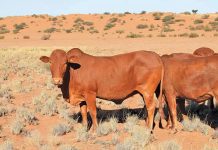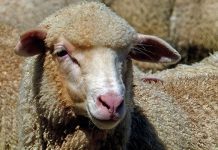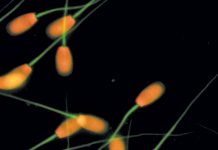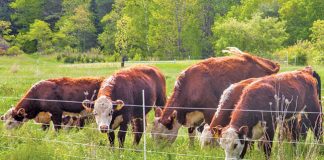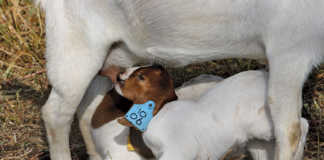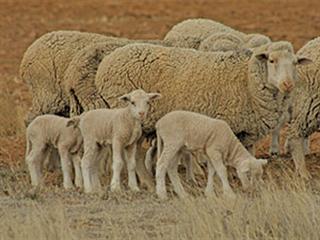
If an animal dies suddenly after a short illness, or is found dead without any obvious cause, a clostridial disease is the likely culprit. Clostridial diseases are caused by bacteria in soil, sewage and water or the gut of an animal.
Causes
- An abrupt change of feed can put an animal at risk. This can happen when animals are moved onto green pastures after winter, or diet is changed suddenly.
- When hygienic procedure is not properly followed in castration, tail docking, wound cleaning or lambing/calving, disease can result.
- Abnormal situations, such as lambing sheep in small camps, can cause stress, which leads to disease.
- Animals gnawing on carcasses or old bones, drinking water or eating feed contaminated by dead animals, are at risk.
Sudden death: gut problems
- Common names of diseases in this category are pulpy kidney (bloednier), enterotoxaemia (rooiderm) and lamb dysentery (bloedpens). Sheep, goats and cattle are at risk, especially young animals. Animals can be found dead without any visible cause. Some livestock may have stomach pain, depression, and watery, grey, or bloody diarrhoea. Convulsions may occur. Dead animals show gas-filled, red intestines and soft, pale kidneys (pulpy kidney).
- Prevention – Take care when changing feed and vaccinate regularly.
Sudden death: swollen legs or head
Common names of diseases in this category are blackquarter (sponssiekte), swollen head (dikkop) and malignant oedema. Cattle, sheep and goats are at risk. Animals are usually found dead without obvious cause. The part affected may be swollen and spongy. Other signs are lameness, depression, and swelling under the skin (oedema). In dead animals, swelling will be visible, and affected muscle will have a streaky, dark red, or greyish-red to yellow and black colour, and will be filled with gas bubbles.
- Prevention – Good wound management and vaccination.
Next week we deal with botulism and tetanus.
Source: Clostridial diseases, by AJ Olivier, Directorate Agricultural Information Services, department of agriculture, in co-operation with ARC – Onderstepoort Veterinary Institute. For more information, contact your animal health technician, state or private vet; or Animal Health for Developing Farmers ARC-Onderstepoort Veterinary Institute on 012 529 9158.



